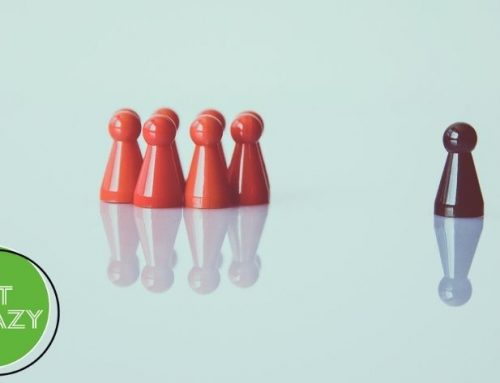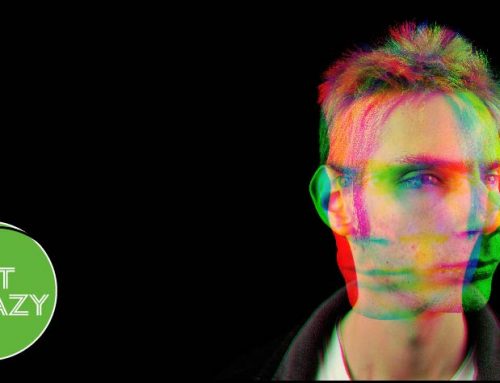Working as a speaker and writer in the mental health field, I hear a lot of things over and over. Stigma, for example, comes up a lot, as do various analogies for different diagnoses. Obviously, I don’t agree with everything I hear, but sometimes I don’t realize I disagree until years later. This is the case with mental illness being an “invisible” illness. When I first heard this, I thought to myself, “That’s true. Mental illness is invisible. It can’t be seen by the naked eye and there is no definitive test.”
Today, however, I feel much differently. Mental illness is not an invisible illness – and I can prove it.
Why Do We See Mental Illness as Invisible?
The first question we have to ask ourselves is, why we see mental illness as invisible in the first place. What about this particular collection of illnesses makes the average person assume they aren’t detectable to the naked eye? Further, why are people with mental illness (any one of the many mental illnesses) so quick to agree with this assertion?
Stigma.
I’m not a fan of the term stigma. It is overused and the average person doesn’t understand exactly what it means. Sadly, more often than not, if you know what stigma is, it is because you’ve been stigmatized. In other words, someone has discriminated against you because you have a mental illness. Nevertheless, we believe our illness is invisible because people can’t see it.
Sadly, that isn’t the case at all. People can see it. They just don’t know what they are seeing. The public’s ignorance has become the responsibility of people who are sick. It isn’t their fault for not knowing, after all. The illness is invisible. Nothing to see, nothing to do, just blame the illness and carry on.
I call poppycock.
Mental Illness is Far From Invisible if You Know What to Look For
Mental illness isn’t invisible; it is just difficult to spot without a basic understanding of what it is. I walked around for years with untreated bipolar disorder and no one noticed. Family, friends, and associates all witnessed the highest ends of mania and the lowest levels of depression, but quickly dismissed it.
 They “knew” what mental illness looked like and I wasn’t displaying any of the signs. I wasn’t violent, wasn’t trying to blow up a mall, and wasn’t hearing and/or seeing things. Since that was the limit to their knowledge, they saw no danger. But the danger was obvious. Just because we couldn’t see it doesn’t mean it was invisible.
They “knew” what mental illness looked like and I wasn’t displaying any of the signs. I wasn’t violent, wasn’t trying to blow up a mall, and wasn’t hearing and/or seeing things. Since that was the limit to their knowledge, they saw no danger. But the danger was obvious. Just because we couldn’t see it doesn’t mean it was invisible.
My symptoms were there, plain as day. They were no more invisible than a cancerous mole on someone’s back. Just because everyone else sees it as a weird looking pimple doesn’t change the fact that, to an educated eye, it is something to be concerned about. Depression, just as a quick example, is noticeable. In general, we can tell when there something different about the people in our lives. Asking someone if they are okay, if they are thinking about harming themselves, or if they need help can save someone’s life.
But, if we believe that mental illness is invisible, we don’t have to bear any responsibility or guilt for not seeing it. In my case, this allowed everyone, myself included, to easily move on from the fact that our collective ignorance could have resulted in my death.
Mental illness can be a like a polar bear in the snow, too similar to its surroundings to see easily. I, personally, hide in my home when I’m depressed so no one can see me. When I’m doing well, the illness is still there, but much harder to detect. Some might say that I am able to hide it so well, and have recovered so well, that the illness isn’t always visible.
But invisible? No. Mental illness can be seen if we, as a society, better educate ourselves on what to look for. This education will lead to understanding and both reduce stigma and save lives.
It’s time we stop pretending mental illness is invisible and instead open our eyes.
This article previously appeared on Psych Central as Mental Illness is Not an Invisible Illness.








Glad you shared this! I agree, mental illness can be seen. It does take a degree of internal acceptance in oneself to know and recognize it! As far as stigma, It has been my experience that until I begin to accept my illness only then can I stop the stigma in my own mind!